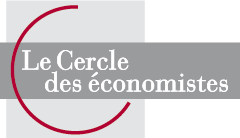Embracing the future, together
For nearly a year now, our societies have been facing an unprecedented situation. The eventuality of a global pandemic that was perceived by many as highly hypothetical has become our terrible reality. All economies have suffered an historic halt: a brutal layoff of trade, a drop of GDP, an increase in public debt, job destructions… The health crisis, followed by this economic meltdown quickly turned into a social and political crisis. Fighting for resilience and adaptation, it was necessary to quickly face the situation and identify priorities. States have assumed the exercise of unprecedented interventionist power to preserve, as best they could, health, jobs, and economic prospects of their nation. But central States cannot do everything and occurring new waves of COVID may blur the lines between emergency measures with planification ones.
Getting all economic actors to cooperate to protect people from the most serious consequences, while building a more resilient society, will be particularly difficult. As discussion arise about what society we should rebuild, many express the urge for a profound change in our ways of living, exchanging, consuming, working, and sharing. But if our conceptions of the world and our environments are disrupted, it is not necessarily the moment to reject everything, including institutions that functioned during the crisis. Yet, hoping for a “return to normalcy” would be just as delusional. We should take this as an opportunity to collectively imagine the foundations of a society able to resist the troubles we have faced over the recent weeks, but also all those that we were failing to address up until now.
The beginning of the 21st century has been shaken by recurring crises – financial, economic, political, social, health. The pandemic has accelerated awareness of risks we are all subjected today. From now on, we must consider seriously all major challenges we have to overcome if we want them not to generate the next catastrophe. We are now compelled to work at the same time on implementing the ecological transition, creating new forms of solidarity, reinventing collective and individual responsibilities, rethinking European and international governance, reconsidering the global trade and economic balance, creating a new relationship with the economy and liberalism, etc.
Throughout this period of fluctuation of the pandemic that we have yet to go through, Le Cercle des économistes is setting up a series of meetings. Our aim is to organize a collective reflection on the means and tools to be mobilized to rebuild our societies. Les Rencontres Économiques d’Aix-en-Provence 2021 will take notice of how our societies and economies have held out through shocks. It will be time to analyze how successful they were protecting the essential and bouncing back. To avoid repeating the mistakes of the past and to take the measure of the challenges ahead, discussion will also aim to innovate, to propose solutions combining response to emergencies with long-term vision. To be sustainable, they should also aim for a better respected environment, a rethought globalization, a reworked relationship between territories and a better adaptation to digital technologies. It is with these ambitious objectives in mind that all the events of Le Cercle des économistes in 2021 will fall within the directory theme:
Embracing the future, together












